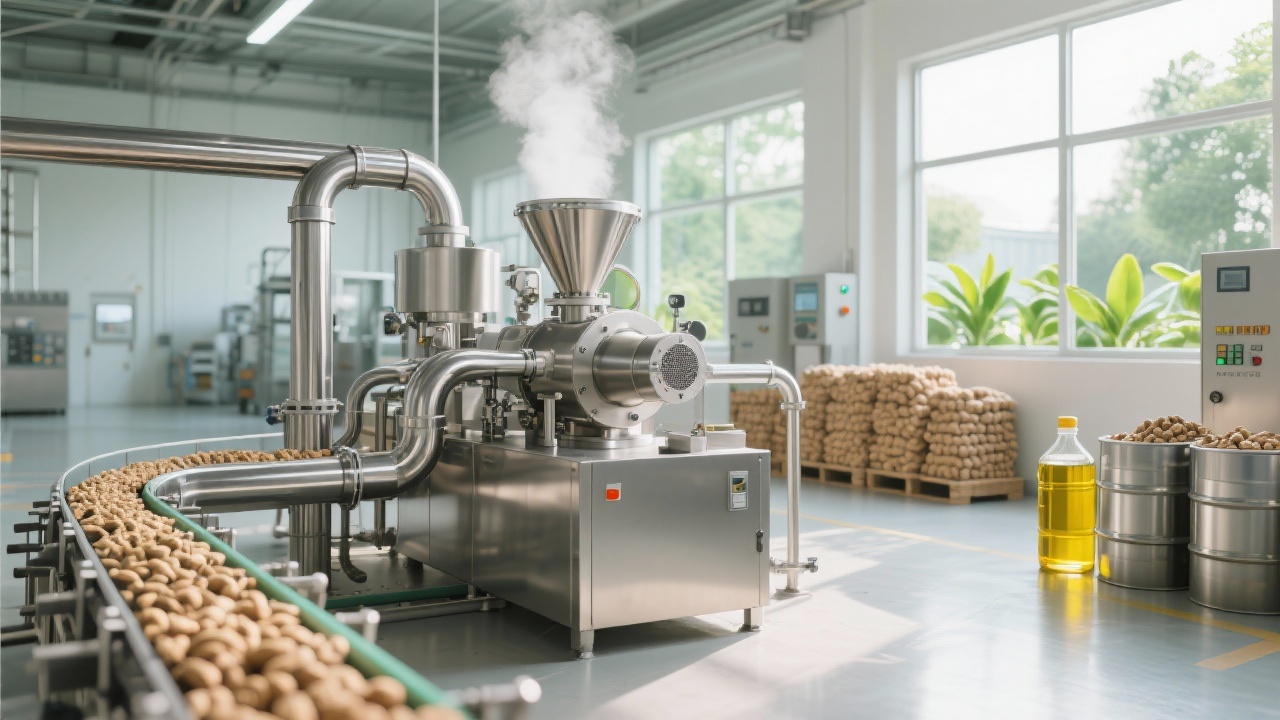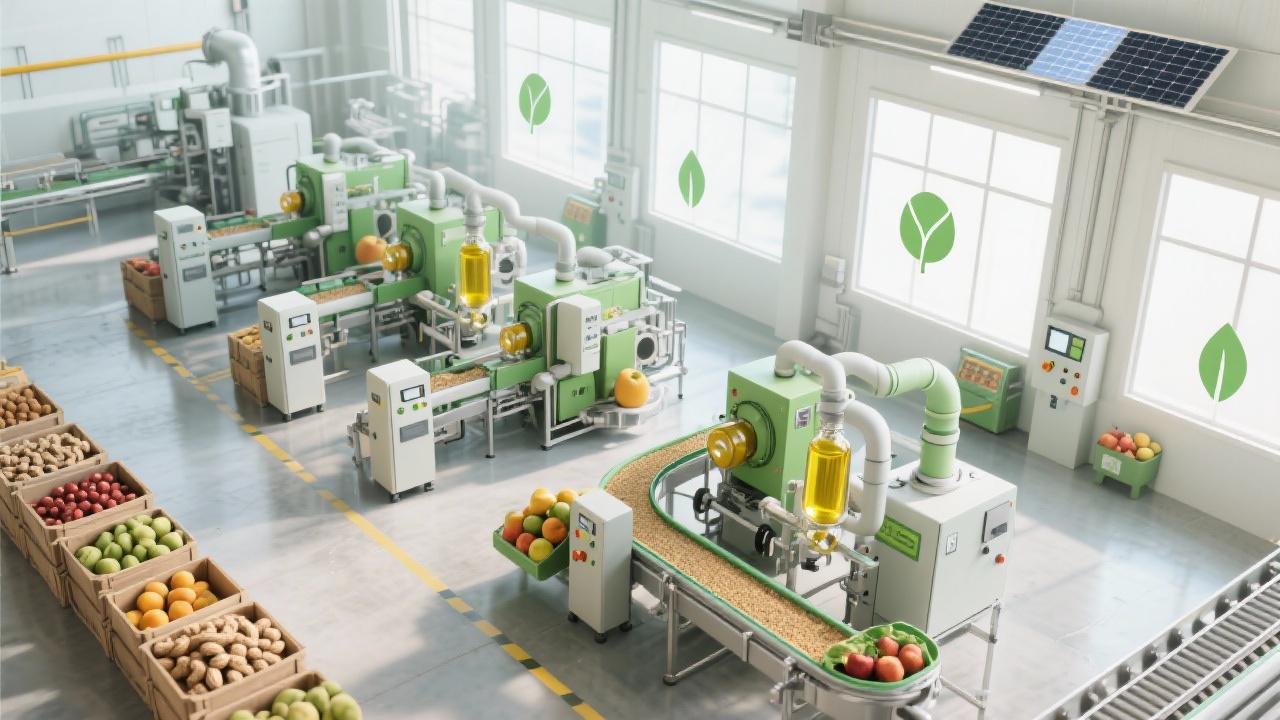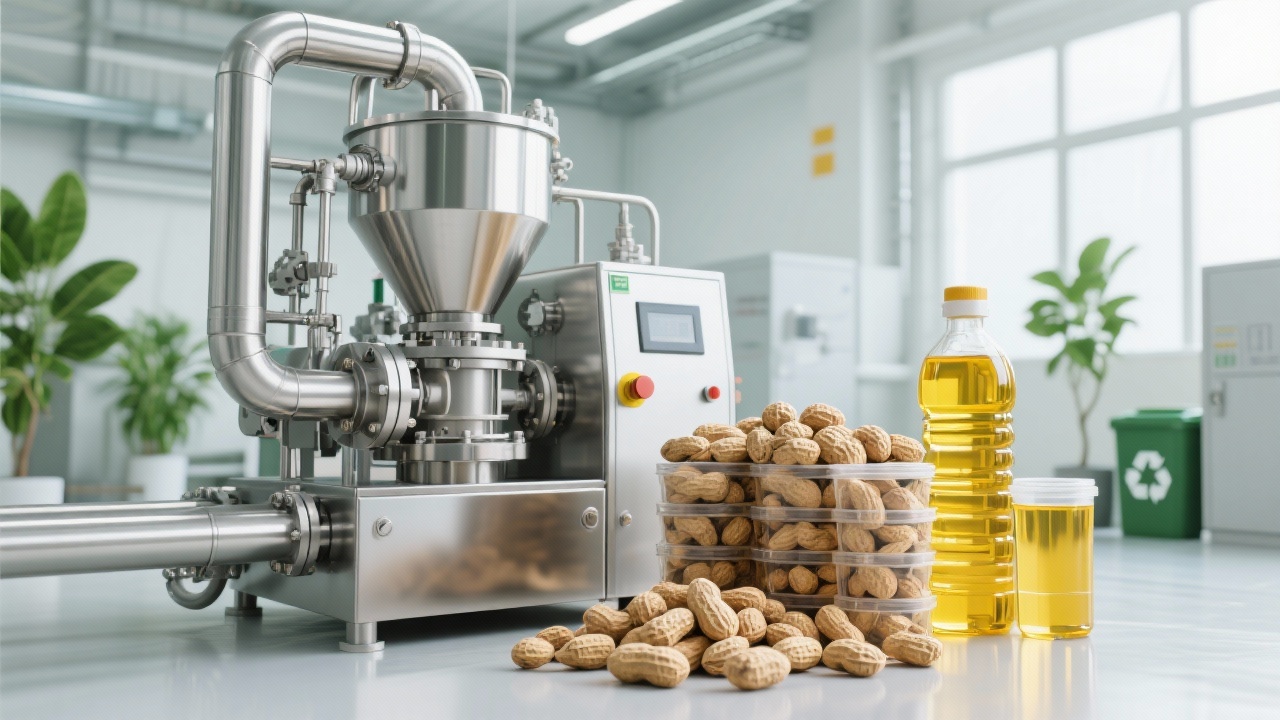Hydraulic System Inspection and Troubleshooting Guide: Ensuring Long-Term High-Load Operation of Oil Press Machines
Master essential maintenance techniques for hydraulic oil press machines to confidently tackle high-load operation challenges. This guide offers detailed insights into hydraulic system inspection, fault diagnosis, and lubrication management. Leveraging the structural advantages and ISO-certified quality of Penguin Group’s easy-maintenance oil press machines, you will learn how to minimize downtime and boost production efficiency for stable and efficient processing. Ideal for oil mill technicians and equipment managers.

Hydraulic System Inspection & Troubleshooting: Ensuring Long-Term High-Load Operation of Your Oil Press
As a technical expert or equipment manager in the oil extraction industry, your goal is to guarantee uninterrupted, efficient production. Understanding the intricacies of hydraulic system maintenance can save you valuable downtime and costly repairs. This guide serves as your practical manual to inspect, troubleshoot, and maintain hydraulic oil presses, unlocking peak performance under prolonged high-load conditions.
Key Points for Hydraulic System Inspection
Regular, systematic checks are crucial for early detection of hydraulic issues. Focus your inspections on the following critical aspects:
- Pressure Monitoring: Consistently verify that system pressures stay within manufacturer-specified limits—typically between 15 to 25 MPa for standard hydraulic presses. Sudden drops or spikes can indicate valve malfunctions or pump wear.
- Hydraulic Oil Cleanliness: Test oil cleanliness using ISO 4406 standards; maintain particle counts below 18/16/13 for optimal performance. Contaminated oil accelerates wear on pumps, valves, and seals.
- Pipeline & Seal Integrity: Examine hoses and connections for leaks, cracks, or looseness. Leaks not only reduce efficiency but pose safety hazards. Ensure all seals are intact and replaced per service intervals or when degradation signs appear.

Common Faults & Rapid Troubleshooting Protocols
Even with preventive care, faults can occur during high-load operations. Quickly diagnosing and addressing these issues minimizes downtime:
| Fault Symptom |
Likely Cause |
Recommended Action |
| Pressure Fluctuations |
Worn or dirty pressure relief valves |
Clean or replace valves, recalibrate pressure settings |
| Oil Leakage |
Damaged seals or loose fittings |
Tighten fittings, replace seals immediately |
| Slow or Delayed Cylinder Response |
Clogged filters or air trapped in lines |
Clean filters, bleed the hydraulic circuit |
Lubrication & Seal Maintenance for Extended Service Life
Proper lubrication reduces friction and wear. Follow these best practices to maximize component longevity:
- Use ISO VG 46 or higher-grade hydraulic oils with anti-wear additives, changed every 3,000 operating hours or per manufacturer guidelines.
- Inspect seals regularly for hardening or cracks, replacing at first sign of degradation to avoid leakage-related failures.
- Implement an oil sampling and lab testing program every 6 months to monitor contamination and additive depletion.
Structural Design Supporting Sustained High-Load Operation
The design of your hydraulic press fundamentally influences its reliability in demanding environments. Equipment adopting Penguin Group's proprietary structural innovations offers:
- Robust frame construction using high-strength steel alloys to resist deformation over extended runs.
- Energy-saving optimizations that reduce power consumption by up to 15%, facilitating both heat reduction and cost efficiency.
- Heat-resistant components engineered for seamless switching between hot and cold pressing modes, enhancing operational flexibility.

Safety Protocols & Standardized Procedures
Ensuring the safety of personnel and machinery is non-negotiable. Always implement:
- Routine operator training programs focusing on emergency shutdown and maintenance best practices.
- Use of lock-out/tag-out (LOTO) systems during inspections and repairs to prevent accidental engagement.
- Compliance with international standards such as ISO 4414 for pneumatic and hydraulic systems.
Proven Results from Industry Leaders
One leading rapeseed oil factory implemented a comprehensive maintenance strategy aligned with this guide, paired with employing Penguin Group’s easy-maintenance hydraulic presses. Within six months, they reported a:
- 20% increase in operational availability due to reduced unscheduled breakdowns
- 15% improvement in energy efficiency
- Lowered maintenance costs by 12%, thanks to enhanced seal durability and modular component design

Expert Insight: “Regular proactive hydraulic system checks combined with advanced press designs are game changers in oil production efficiency. Ensuring cleanliness of hydraulic oil and seal integrity must be a top priority.” – Mechanical Engineer, Penguin Group



